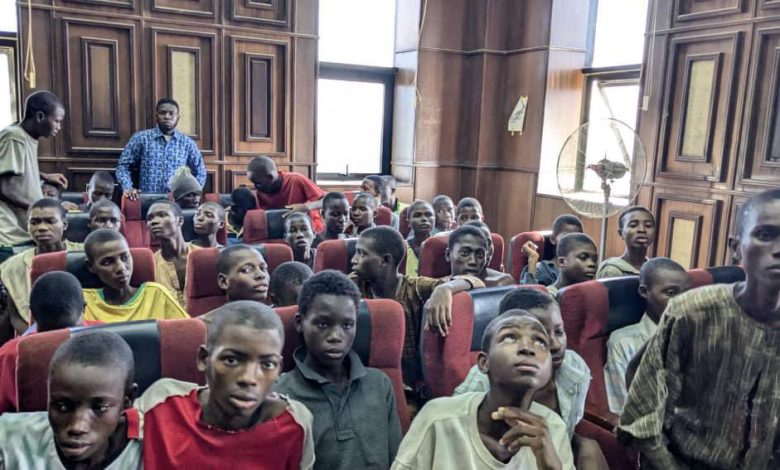In a bold challenge to the Nigerian government, the Socio-Economic Rights and Accountability Project (SERAP) has demanded the immediate release of 32 children and other protesters detained during the recent #EndBadGovernance demonstrations, issuing a 48-hour ultimatum to President Bola Tinubu’s administration.
The rights group’s intervention comes amid growing concerns over reports of deteriorating health conditions among the detained protesters, including disturbing incidents of children collapsing in courtrooms. The detainees, part of a larger group of 76 protesters, have been held for three months following nationwide demonstrations against economic hardship and governance issues.
In a strongly-worded open letter dated November 2, 2024, SERAP Deputy Director Kolawole Oluwadare highlighted the urgent nature of the situation, particularly emphasizing the plight of the detained minors. The organization has called on President Tinubu to direct Attorney General Lateef Fagbemi to facilitate the immediate and unconditional release of all protesters, arguing that their detention violates fundamental human rights principles.

The controversy has taken on increased urgency following reports of protesters being held in various locations across the country, including the Federal Capital Territory, Kaduna, Gombe, Jos, Katsina, and Kano states. The detainees face serious charges, including allegations of treason and intent to destabilize Nigeria, despite their protests focusing primarily on economic hardship and governance reform.
SERAP’s intervention has brought attention to the broader implications of detaining peaceful protesters, particularly minors. The organization argues that such actions create a chilling effect on civil society, potentially deterring citizens from exercising their constitutional rights to peaceful assembly and free expression. The group has escalated the matter by copying their letter to Dr. Matthew Gillett of the UN Working Group on Arbitrary Detention, indicating potential international ramifications.
Of particular concern are the conditions under which the protesters are being held. SERAP has emphasized that the detention facilities fall substantially below international standards, citing violations of the United Nations Standard Minimum Rules for the Treatment of Prisoners (Nelson Mandela Rules). The organization has expressed specific concern about the protesters’ access to adequate food, water, and medical care.
The case of the detained children has sparked additional controversy, with SERAP arguing that their detention violates both international conventions and Nigeria’s Child Rights Act. The organization points out that these children should be in school rather than in detention facilities, emphasizing that their treatment contradicts the principle of acting in the “best interests of the child.
The protests that led to these arrests were primarily focused on economic issues, including calls for reduced governance costs, the reinstatement of fuel subsidy, and improved food security. However, the government’s response, characterized by mass arrests and serious criminal charges, has raised questions about the administration’s approach to handling civil dissent.
SERAP’s ultimatum includes demands for thorough investigation of alleged human rights violations against the detainees and accountability for those responsible. The organization has warned that failure to address these concerns within the specified timeframe will result in legal action to compel compliance.
The situation has broader implications for civil rights and democratic expression in Nigeria, particularly concerning the treatment of young protesters and the government’s response to peaceful demonstrations. The case has drawn attention to the balance between maintaining public order and protecting citizens’ rights to peaceful protest and expression.
As the 48-hour deadline approaches, the response from the Tinubu administration will be closely watched by both domestic and international observers, potentially setting a precedent for how similar situations are handled in the future. The outcome of this confrontation could have significant implications for civil rights, youth activism, and the relationship between the government and civil society organizations in Nigeria.



